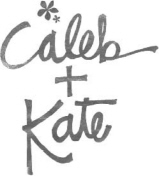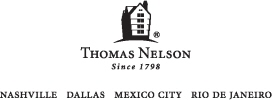Caleb + Kate

PRAISE FOR
CINDY MARTINUSEN-COLOMA
“Ruby's family has a strong connection to their Christian faith and she tries to understand God's purpose for her life as she navigates even more difficulties with new family members and new friends. Ruby is a lively character, and the Christian themes are woven seamlessly through the story. The complicated adults in Ruby's life are especially well drawn. An enjoyable story that will resonate with teen readers of Christian fiction.”
â Kirkus Reviews
on
Ruby Unscripted
“Martinusen-Coloma captures a teen's desire to stretch beyond her friends' insecurities to discover her own talents. Readers will root for Ruby as she embraces her new life.”
â Romantic Times
on
Ruby Unscripted
“Young adults will be familiar with the mantra that what is on the inside is more important than outer beauty, even though experience tells them otherwise. Ellie's and Megan's well-written character development will cause readers to care about them long after this poignant story is over.”
â Romantic Times
4-Star Review of
Beautiful
“Finally! An author that gets real. Real about school drama. Real about struggles at home. And real about what beauty is. Cindy [in
Beautiful
] confronts some of the deepest questions and fears in a girl's heart: How do other people see me? What if I lost the one thing that means the most to me? Who am I, really? Does God care? Prepare to search your heart, learn about yourself, and find comfort and hope as you journey through this book.”
â Jenna Lucado
Revolve speaker and author of
Redefining Beautiful

Other novels
by Cindy Martinusen-Coloma include
Orchid House
Eventide
The Salt Garden
North of Tomorrow
Winter Passing
Blue Night
Young Adult Novels:
Beautiful
Ruby Unscripted

CINDY MARTINUSEN-COLOMA

© 2010 by Cindy Martinusen Coloma
All rights reserved. No portion of this book may be reproduced, stored in a retrieval system, or transmitted in any form or by any meansâelectronic, mechanical, photocopy, recording, scanning, or otherâexcept for brief quotations in critical reviews or articles, without the prior written permission of the publisher.
Published in Nashville, Tennessee, by Thomas Nelson. Thomas Nelson is a registered trademark of Thomas Nelson, Inc.
Published in association with Books & Such Literary Agency, Janet Kobobel Grant, 52 Mission Circle, Suite 122, PMB 170, Santa Rosa, CA 98409-5370.
Thomas Nelson, Inc., titles may be purchased in bulk for educational, business, fund-raising, or sales promotional use. For information, please e-mail [email protected].
Publisher's Note: This novel is a work of fiction. Names, characters, places, and incidents are either products of the author's imagination or used fictitiously. All characters are fictional, and any similarity to people living or dead is purely coincidental.
Library of Congress Cataloging-in-Publication Data
Martinusen-Coloma, Cindy, 1970â
Caleb + Kate / by Cindy Martinusen Coloma.
p. cm.
Summary: Told in their separate voices, seventeen-year-olds Kate, an Oregon socialite, and Caleb, a Hawaiian who works at her family's hotel, fall deeply in love despite a family feud, and rely on their Christian faith to carry them through.
ISBN 978-1-59554-678-4 (pbk.)
[1. LoveâFiction. 2. WealthâFiction. 3. Hotels, motels, etc.âFiction. 4. SchoolsâFiction. 5. HawaiiansâFiction. 6. Christian lifeâFiction. 7. Family lifeâOregon--Fiction. 8. OregonâFiction.] I. Title. II. Title: Caleb plus Kate.
PZ7.M36767Cal 2010
[Fic]âdc22
2010002412
Printed in the United States of America
10 11 12 13 14 RRD 5 4 3 2 1
To Nieldon . . .
who renewed my belief in true love
To unpathed waters, undreamed shores.
WILLIAM SHAKESPEARE
The Winter's Tale
(Act 4, Scene 4)
Contents
The course of true love never did run smooth.
WILLIAM SHAKESPEARE
The Tempest
(Act 1, Scene 1)
KATE
“Love is like death's cold grip crushing the beats from an innocent heart.”
A ripple of muted laughter rolls through the girls around me, and I bite my lip to keep from joining them. Elaine dramatically recites her poem from where she stands at the front of the class, chewing at a hangnail, her knees angled as if she needs to use the bathroom.
“Love is like a decaying tree on a warm spring day. It was born from pain and was fathered by suffering. Once upon a time, there was love and people believed in it, and then love died or perhaps it relocated to another planet, no one knows, though people still seek it, long for it, act like it's still around . . .”
I wonder when and how Elaine became so utterly strange. It's painful to watch and to hear the snickers among the other girls sitting in the theater-style seats, their feet tucked carefully beneath matching plaid skirts. “Women & Literature” is a semester class required of all females in our junior year. We meet in the drama classroomâwith the stage and the seatsâ perhaps to subconsciously empower us young women to take the leading role on the stage of our lives. Or at least that's what Ms. Landreth said at the start of this semester.
Part of me wants to take Elaine by the shoulders and shake some sense into her; another part of me wants to stand up and tell the other girls to be quiet and just listen. Elaine adjusts her black glasses, looking out at us as if she still cannot quite focus, despite the thick lenses. Her choppy raven-dyed hair looks like she cut it herself.
“Love has died, like God and Romeo, and not even the birds can find a song to sing.”
A text from Katherine pops onto my phone:
Need advice
about prom
.
“Why believe in love, O Women? Oh, why do we want to believe in what cannot be believed in? Love divorced itself from mankind. Move on, hearts.”
Elaine finishes her poem and makes a bow, remaining at the front of the class as we offer awkward, halting applause.
Monica leans toward me. “Wow, cheerful. That sounds like something you would say.”
“Thanks a lot,” I whisper.
“Elaine, that was quite a poem,” Ms. Landreth says from the front row. She rises and addresses the class. “Comments or questions, ladies?”
I write Katherine back without looking down at my phone.
Brave of you to ask advice from me
.
Monica leans onto her hand with her elbow on the armrest, and whispers, “Did you hear Katherine and Blake broke up?”
“Really? Who broke up with whom?” I whisper. “And why now?” Tomorrow night is the promâwho breaks up a six-month relationship the day before prom?
Ms. Landreth clears her throat. “Kate, was that a question directed at Elaine?”
At the Gaitlin Academy, pupils are encouraged to express their individualism through art, debate, athletics, or whatever means possible. This allows for an odd assortment of rules and nonrules. But in Ms. Landreth's class, I am intruding upon Elaine's individualism because she was expressing herself; I disrupted that expression by my whispers to Monica. Sometimes the whole thing seems a bit ridiculous to me.
“No, I wasn't directing a question,” I say as Monica covers her smile with her hand.
“Why don't you give us your response to Elaine's poem?”
Elaine stares at me as if I annoy her as much as she annoys everyone else. There is no way out of it now.
I stand, which Ms. Landreth expects when someone is speaking in class. “I found it to be . . .” Elaine stares as if daring me to put down her poem. “. . . It was nice.”
“Please now, Kate. You know we need something of value other than it being nice.
How
is it nice? Why do you choose the description
nice
for a poem about the death of love in our time?”
I sigh and catch Monica acting as if she's waiting anxiously for my response. She is fully enjoying my discomfort.
“I found it to be nice . . . because it's sad and the subject of love is a melancholy subject. I suppose as women who are intelligent and independent”âI glance around and several other girls are hiding smilesâ“we know that though love is not dead in theory, the dream of fairy-tale love is dead in actuality. It doesn't exist. Sad as it might be, that's why Elaine's poem is also nice, because it's true.”
“Bravo,” Monica says aloud, then whispers, “Aren't you quick?”
Ms. Landreth is nodding thoughtfully. “Interesting thoughts. Anything else?”
“Um.” I try to come up with something else, since Ms. Landreth has that look of expectancy in her expression. “Only that I wonder about the author's experiences with love that brought her to this opinion.”
Ms. Landreth tilts her head to the side, nodding still, as she looks expressively toward Elaine. “Elaine, would you feel comfortable sharing a little about the origin of your poem?”
“I actually do have some experiences with love. More than you have, Kate,” Elaine says in a defiant whine. I hadn't meant it as a criticism. I really do wonder. If Elaine is talked about at all, it revolves around her eccentric nature, not her love life.